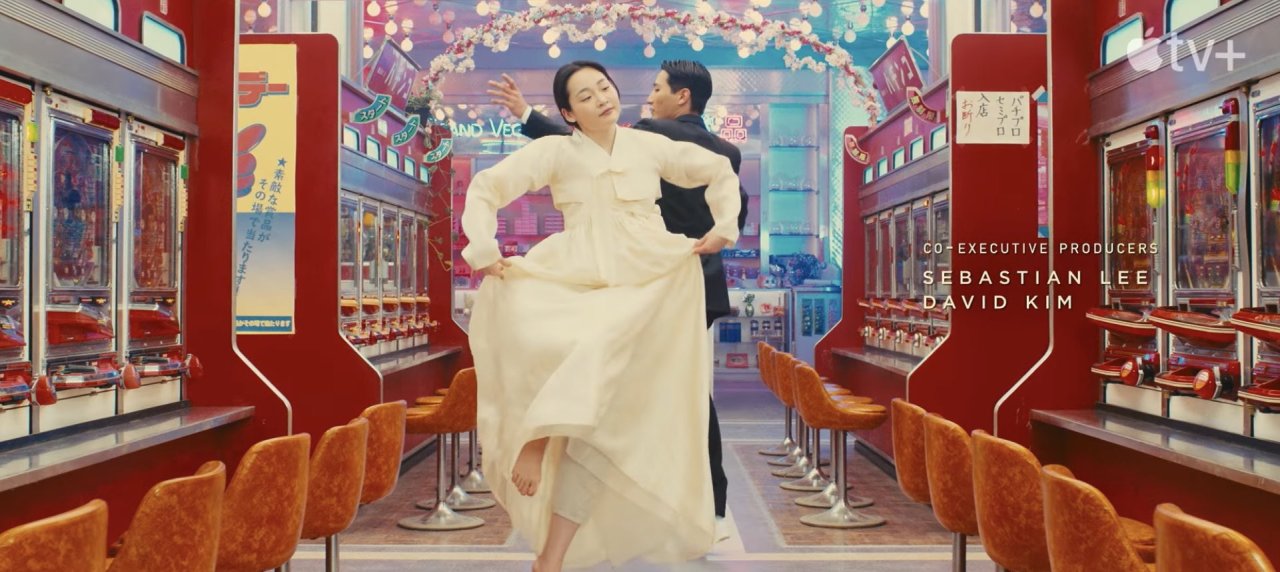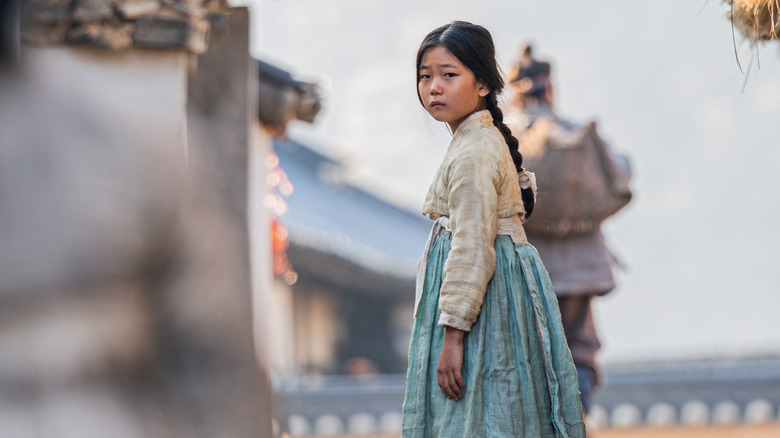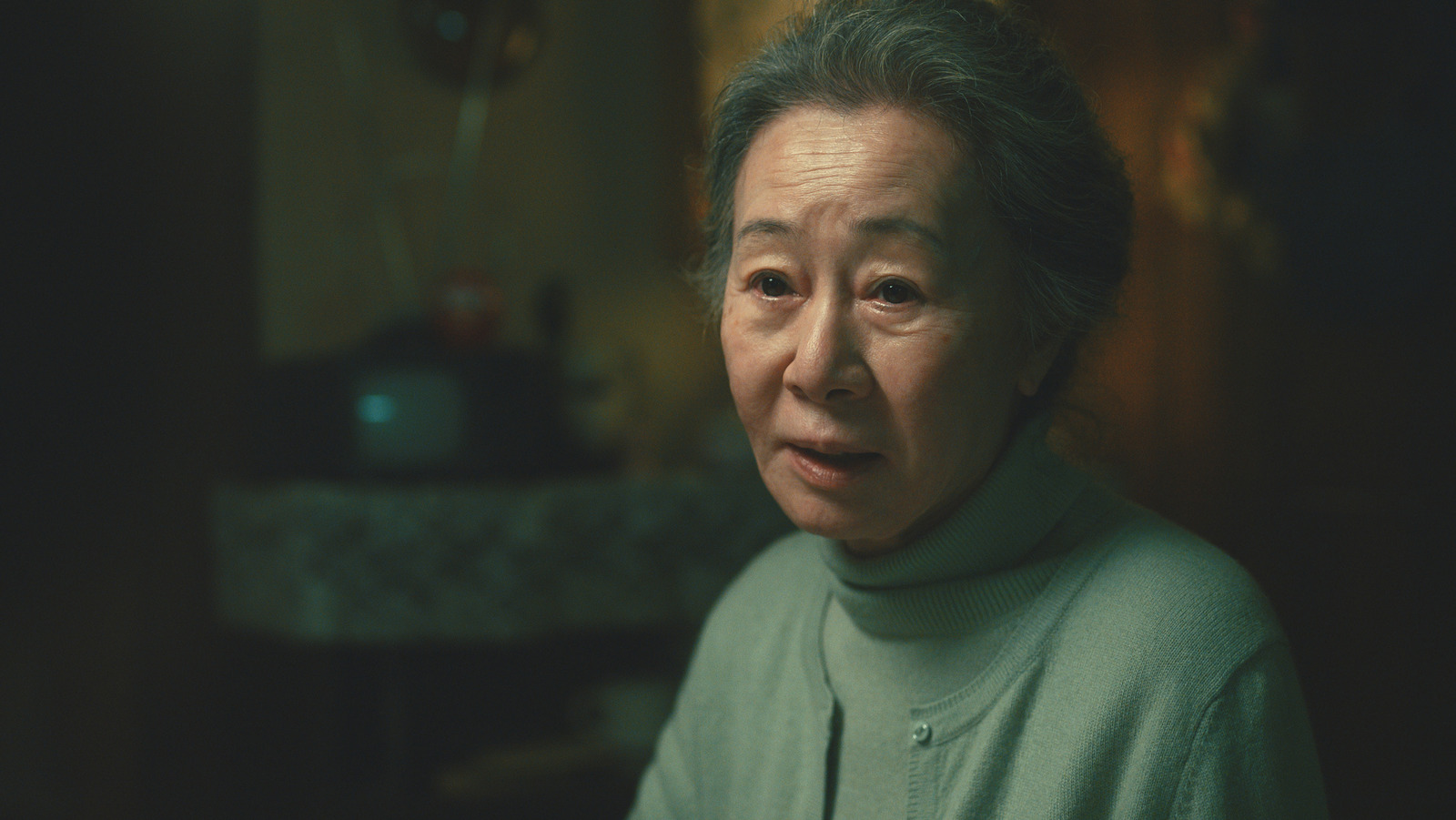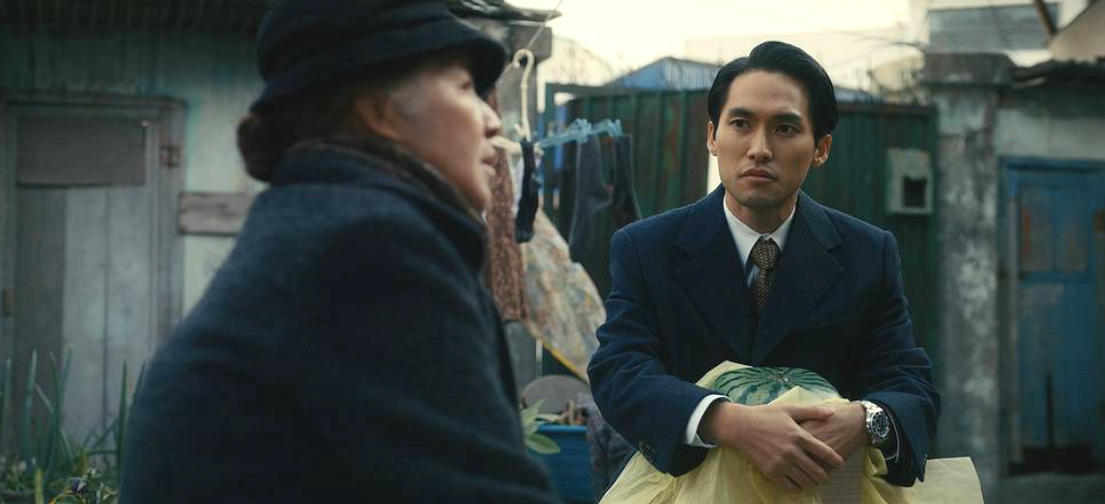Review: Season 1 of 'Pachinko'
 Wednesday, May 4, 2022 at 11:00AM
Wednesday, May 4, 2022 at 11:00AM by Lynn Lee
 from 'Pachinko's opening credits. © Apple TV+
from 'Pachinko's opening credits. © Apple TV+
Can a country truly be your home if it never fully accepts you? Can a country still be your homeland if you left behind your life there and have never gone back?
These questions haunt the lush, sweeping AppleTV+ period drama series Pachinko, which recently concluded its first season. So far, so universal: the yearning for roots, for a sense of belonging, should resonate with anyone who’s ever been displaced or separated from their family or place of origin. At the same time, the show – based on the best-selling novel by Min Jin Lee – focuses on a very specific chapter of history that isn’t well known outside of Korea and Japan, yet in many ways echoes the frictions, tensions, and injustices underpinning the history of race and immigration in other countries...

A bit of background for those unfamiliar with it: Beginning in the late 19th century, Japan undertook a phased conquest of Korea that led to its occupation and eventual annexation in 1910, only ending with Japan’s defeat in WWII. Under Japanese rule, Koreans were stripped of their cultural heritage, property, and political and financial independence. Landowners were reduced to tenant farmer status, left with barely enough to feed themselves, while any resistance or attempts to assert Korean nationalism were brutally suppressed. In the face of such bleak prospects, large numbers of Koreans chose to migrate to Japan, primarily to take low-paying menial jobs. (That’s not counting the Koreans who were later brought over during WWII as de facto slave labor, but that’s a story for another day.) In Japan, the Korean immigrants – referred to as the Zainichi – were treated as an inferior caste, forced to live in squalid ghettos and subjected to constant harassment by Japanese authorities hunting for the faintest whiff of subversion. Even after WWII, the Koreans who stayed in Japan continued to experience prejudice and second-class status.
Still, even in such a hostile environment, some managed to thrive. Pachinko is the story of one of them – a fictional figure, but one so compelling she feels like a real person. Her name is Sunja (played as a young woman by Kim Min-ha, and as an elder by Youn Yuh-jung), and from the outset she’s literally a survivor: born to a fisherman and a boardinghouse keeper on a gorgeously picturesque island near Busan, Korea, she’s the only one of their progeny to make it past infancy. From an early age she stands out as an unusually bright, resourceful, and fearless girl, notwithstanding her lack of education and worldly knowledge. As a teenager she catches the eye of the local fish broker/shady rich guy, Koh Hansu (Lee Min-ho), and the two become lovers – until circumstances I won’t spoil lead her to break things off and seek a new life in Osaka. Sunja remains in Japan throughout WWII and beyond and sees her children and grandchildren grow up there, too, each generation finding a measure of success while struggling with different iterations of the same deep-rooted anti-Korean biases.
While the book proceeds in straight chronological order, the series toggles back and forth between Sunja’s youth (the 1920s and 1930s) and her old age (the 1980s). The ’80s segments in turn are split between an older Sunja and her grandson, Solomon (Jin Ha), an ambitious Ivy-educated go-getter who works for an investment bank in New York but returns to Japan to close an important deal. I’ll be honest, I wasn’t initially a fan of this cross-cutting approach. It tends to chop up the dramatic tension of each storyline and make it harder to track who’s who, what part of the narrative one’s in, and how the different pieces connect. I may also have been less than thrilled with the prominence given to Solomon’s narrative because the novel is strongest in the first half and frankly loses some of its punch once it gets to the characters of his generation, who are neither as interesting nor as fully developed as their forbears. I found that to be the case with the show as well, even though Jin Ha (Devs) is quite good as Solomon.
 OSCAR WINNER Youn Yuh-jung (we love saying that) in 'Pachinko'
OSCAR WINNER Youn Yuh-jung (we love saying that) in 'Pachinko'
Still, the attempt to intertwine past and present more closely together was clearly a deliberate choice by showrunner Soo Hugh (remember that name), and you don’t hire a legend like Oscar winner Youn Yuh-jung to sit passively in the background. Although Youn’s Sunja doesn’t get as much high drama to play as her younger counterpart, her eyes and quiet comments serve as an eloquent counterpoint to her grandson’s hustling. And as the series unfolds, its efforts to emphasize the links between “then” and “now” do start to pay off.
That consonance reaches a high point in the fourth episode, which shifts seamlessly between a dramatic event on young Sunja’s sea voyage to Japan and a boardroom scene, half a century later, in which another Zainichi woman (Park Hye-jin, who’s phenomenal in a relatively small role) prepares to sign paperwork that would sell her tiny property to Solomon’s employer and allow a big development project to move forward. Neither of those sequences is in the book, but they’re both true to its spirit and play off each other so powerfully that their dual climax left me utterly gobsmacked.
 Park Hye-jin and Jin Ha in "Pachinko"
Park Hye-jin and Jin Ha in "Pachinko"
Overall, however, Pachinko’s dramatic and emotional heft feels weighted towards the younger Sunja scenes. Fortunately, Kim Min-ha is a terrific find who manages to capture the full range of Sunja’s trauma, sorrow, and moments of joy. The rest of the cast acquit themselves well, too, even if Lee Min-ho, a well-known heartthrob in South Korea, comes across as a tad too dour for Koh Hansu, a character whose amorality is matched only by his charisma.
Much credit is also due to Kogonada and Justin Chon, who each directed four episodes of the first season to riveting effect. No matter who’s at the helm, virtually every scene is beautifully and intimately shot, making something as simple as a bowl of white rice or as terrifying as a police interrogation equally laden with meaning and emotion. And whatever Apple’s budget was, the production values are outstanding – the showstopper being a stand-alone episode (not in the book) that depicts the great Kanto earthquake of 1923 and its grim aftermath. The series also smartly has the actors speak both Japanese and Korean, as they would have done historically, while subtitling the two languages in different colors to underscore their differences.
My biggest concern, as I was watching the show week to week, was that it seemed to be moving too slowly to get through the entire book and didn’t seem to be at all interested in the middle generation (Sunja’s sons/Solomon’s dad Mosazu, who’s barely on screen even though he runs the family’s titular pachinko business). Indeed, the young-Sunja half of the finale ends on the eve of WWII and something of a narrative cliffhanger, while the other half seems to be setting up a new plot arc for Solomon. Now that Pachinko has been renewed for a second season – although Hugh envisions four seasons total – I’m more hopeful that it will have time and room do all of the characters full justice, while continuing to interpolate other stories that build on the book’s themes. It certainly deserves no less.
 Apple TV+,
Apple TV+,  Jin Ha,
Jin Ha,  Justin Chon,
Justin Chon,  Kim Min-ha,
Kim Min-ha,  Kogonada,
Kogonada,  Lee Min-ho,
Lee Min-ho,  Pachinko,
Pachinko,  Park Hye-jin,
Park Hye-jin,  Reviews,
Reviews,  Youn Yuh-Jung,
Youn Yuh-Jung,  streaming
streaming 


Reader Comments (2)
I loved every minute of Pachinko, but I did not read the book so I had no idea what to expect. I do think the performances were outstanding and the production design, cinematography, soundtrack, etc. off the charts wonderful. That title sequence, though, fantastic, but weirdly out of sync with the tone of the show. This production reminds me of some of the glorious mini-series we used to get back in the days before peak TV. Lonesome Dove, North and South, Roots, and the water cooler talk after each episode. Unfortunately, I haven't heard much about this one except for those who've read and adored the novel. Severance, also on Apple TV+ seems to be on soaking up all the TV chatter, but I am so done with dystopian, speculative fiction (e.g, Devs, Raised by Wolves, Station Eleven). Pachinko feels so human and warm, despite the horrors of history. Oh, and that Episode 7? My gawd, television at its finest.
I think the book is a masterpiece (I strongly recommend that those who enjoy the series read it) and at first, I wasn't sure that I liked the different approach of the series, but I do believe it works. I'm not sure a straightforward adaptation could have ever equalled the experience of reading the book. I've enjoyed a lot of details the writers have added to ensure that the tv series is its own story (perhaps most effective was the subplot involving the woman who refused to sell her land in the '80s/Solomon narrative) while still maintaining the tone and themes of the novel. Also, I cannot complain about an expanded role for Youn Yuh-jung - when I noted she was cast in this series around the time Minari became a hit, I worried that the role would be so small we'd hardly get to enjoy her.
As a side note, the title credits are the best I've seen in years! I could watch them over and over, so joyful.